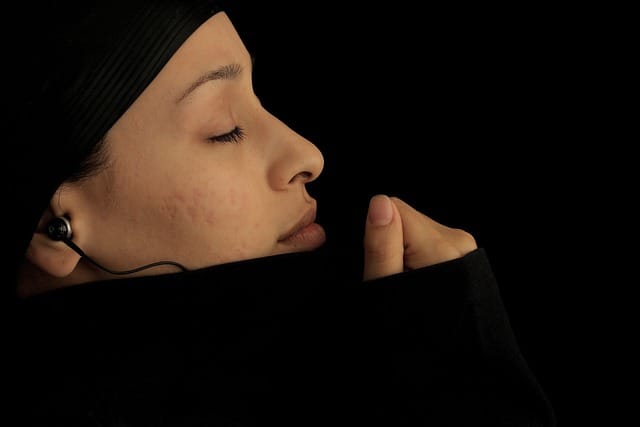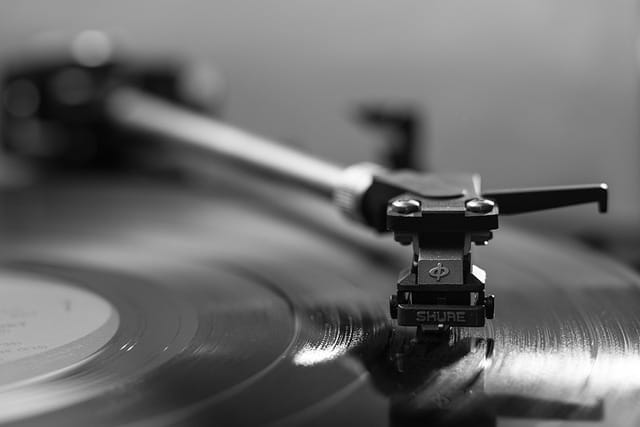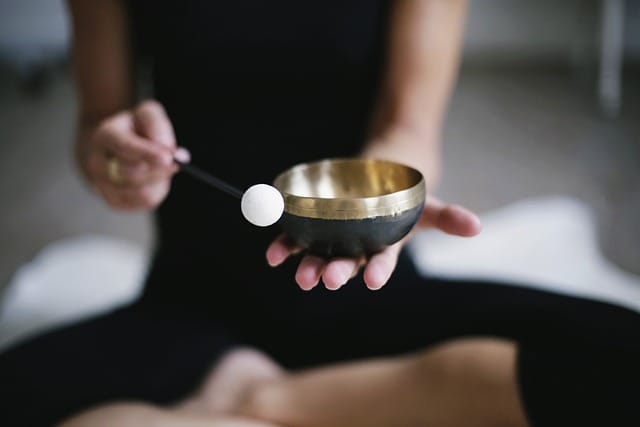Rehabilitation – although it comes in many forms – is the method by which individuals who are suffering from addiction learn to overcome it and maintain sobriety in the long term, even after leaving their chosen rehabilitation programme.
Rehabilitation is different for every individual, as the processes involved and the experiences that an individual will partake in will differ depending on each person’s specific needs and preferences.
Each individual will deal with their addiction differently, and experience the effects of addiction differently, so rehabilitation is not a ‘one size fits all’ approach.
Instead, individuals who choose to go down the rehabilitation route will be recommended specialised treatment programmes and therapies for them and their individual effects of addition, leading to a more tailored and effective approach to recovery.
This article aims to explore rehabilitation in general, but also explain the more specific and unique forms of treatment, with a focus on sound therapy specifically and other related treatments.
Learn more about how sound therapy can support addiction recovery by giving our expert team a call on 0800 140 4690

Individuals who are struggling with addiction not only cause issues for themselves i.e., a decline in physical and mental health, but they also cause issues for those around them [1] and their local healthcare services.
This is why it is always recommended that these individuals seek rehabilitation as soon as possible, before their addiction can worsen.
If left untreated, addictions can quickly intensify, often resulting in a serious risk to the individual’s health – both physical and mental, as mentioned previously.
Because of this, it is essential that individuals find a rehabilitation programme that is suitable for them.
Rehab 4 Addiction will always recommend a three-stage rehabilitation programme, and the three stages are outlined in the following subheadings.

The detoxification stage, also known as undergoing a ‘detox’, is the stage which most individuals are first encouraged to complete when entering rehab.
This is because a detox will prepare them for the following stages of rehabilitation, allowing them to properly engage with therapy and other treatments.
The detoxification stage treats the physical health of the individual, ensuring that they withdraw from the substance that they are addicted to.
This ensures that their body is a ‘clean slate’ for the remainder of their experiences in rehab.
It also helps the individual to safely withdraw from the substance that they are addicted to – for some of which the process can be dangerous and life-threatening if not supported and treated by medical professionals in some cases.
However, detox is only necessary for physically addictive substances, such as alcohol and heroin. Other addictions (cocaine, cannabis, behavioural addictions, etc.) do not require detox and the second stage can begin straight away.

Making up the bulk of the individual’s time in rehabilitation, therapy and other treatment programmes are essential for the sustained mental health and long-term retention of the individual’s sobriety.
During this stage, an individual will take part in a variety of different therapies and other treatments that are suitable for their addiction recovery needs, including:
These treatments, as well as the individual’s own engagement and attitude toward recovery, will help them to create coping mechanisms and techniques to help them deal with their addiction and its associated effects in the long term.
This includes the individual’s long-term future sobriety – something which all individuals entering rehabilitation are encouraged to aim toward.

Aftercare is one of the most important stages of rehabilitation overall, as it is the stage in which an individual will aim to retain all they have learned and apply this to their long-term addiction recovery journey.
Aftercare can be as supported or as independent as the individual requires, with some rehabilitation centres offering complimentary aftercare systems for up to a year or more after leaving, though all individuals are able to access aftercare services for as long as they require them for.
Studies have shown that aftercare is often a key determining factor in relapse rates [2] i.e., high relapse rates may be due to the lack of aftercare services that are provided in some locations.
Though aftercare is becoming more and more of a commonplace service, its importance should always be paramount – it is an essential stage of rehabilitation and is vital for any individual trying to maintain sobriety in the long term.
Begin your addiciton rehabilitation journey today by calling our team for free on 0800 140 4690

In addition to the ‘standard’ forms of treatment offered in the therapy section of rehabilitation such as CBT, DBT, and MI, it is becoming more and more common for individuals to engage in holistic treatment methods.
This refers to slightly more ‘alternative’ treatment types that often encompass a large number of factors that can contribute to a successful and efficient recovery process.
There is not a lot of research into holistic treatments, mainly due to the differences in the specific issues that they treat and the unique cases in which they are applied and are shown to be effective, but the general consensus in the world of addiction recovery research is that further investigation is needed. [3]
To learn more about what holistic treatments in general and sound therapy in particular can do to help you beat addiction, talk to us on 0800 140 4690

Holistic treatments are often effective as they bring together many qualities of treatments and recovery that individuals require during their rehabilitation journey.
This means that these treatments often draw together the hobbies and enjoyed activities of an individual, while also applying these activities to a treatment technique and adjusting this as needed.
Holistic treatments are becoming more commonly used in the modern world due to an increased understanding of the benefits of these unique treatments and the unique needs of every patient.
Some individuals, for example, do not respond well to typical treatments, especially if there is the presence of additional mental health issues (as there sadly often is in addiction treatment – known as co-occurring mental health issues or dual diagnosis).
In addition, learning difficulties may make it challenging for an individual to focus on traditional treatment methods, meaning that holistic treatments my make up the bulk of this individual’s care.
Think sound therapy might be what you need to overcome addiction? Talk to our rehabilitation experts on 0800 140 4690

There are countless different types of holistic treatment methods, as almost any activity can be adapted to make it into a form of treatment, though the effectiveness of this may vary.
In addition, these activities may not always be something that the individual has partaken in before entering rehabilitation, making the experience new and fresh for them.
Whilst this can be intimidating, it can also make these forms of therapy additionally effective, as a step away from the norm can sometimes be beneficial.
Rehab 4 Addiction generally suggests that holistic treatments should be combined with more traditional therapies and programmes (such as CBT, DBT etc.), though this will be different for every individual case and should always be discussed with a medical or addiction professional.
The following subheadings outline some of the most common forms of holistic treatments.

As the focus of this article, sound therapy is a common form of treatment that is used throughout rehabilitation – often in a dedicated centre, but it can be found through other services too.
Also known as vibrational therapy, sound therapy uses sound to promote full-body healing as well as healing of the mind.
It is especially effective with the treatment of addiction, as this is a complex disease that sound therapy can help in treating and understanding.
This will be covered in more detail later in this article.

Also creatively based, art therapy encourages individuals to use a variety of mediums to express their feelings, as well as using these creations over time to assess their progress.
This is a very emotion-based form of treatment, based on the ideas of creativity helping individuals to heal and gain self-reflection and insight into the subconscious effects of addiction.
Art therapy is best used when combined with treatments such as CBT, but it is especially effective for individuals who have high creativity.
It is also beneficial for individuals who may not feel so creatively inclined, as this exposes them to new experiences and activities that they may have not previously encountered.

Equine therapy, at its most basic, is a form of holistic therapy that uses horses in a controlled environment to help an individual overcome a range of issues.
Horses are known to be extremely social animals, often believed to have high emotional intelligence – something which can massively engage someone in treatment and help them deal with the effects of their addiction over a period of time.
No individual will be encouraged to do anything that may make them feel uncomfortable; horses are not for everyone, so this is something that should be discussed with a medical professional before beginning any form of treatment.
Discover what holistic therapies are available in your local area by giving us a call for free on 0800 140 4690

Sound therapy can be extremely effective in the treatment of addiction due to the different ways in which sound – and music, more specifically – can be used to help individuals overcome a range of different emotions and effects related to their addiction.
In short, this is known to be an effective treatment due to the significant impact that sound waves can have on the brain, often related with the reward-processing areas. [4]
Though this is related specifically to music and the creation of or listening to music, sound waves and vibrations in general can also be effective in the treatment of a variety of issues relating to addiction.

There are many benefits to sound therapy and its use in addiction therapy, and these are listed below:
Don’t let addiction control your life – get the help you need today by calling us on 0800 140 4690

As with all types of treatment, holistic and traditional, there are many variations of each therapy type, enabling the specialisation and tailoring of an individual’s treatment programme.
The following subheadings outline some of the key methods of sound therapy, describing each one and how it may be applied in a rehabilitation setting.

The most commonly thought-of form of sound therapy is music therapy e.g., the inclusion of music within the therapeutic programme.
This can include a variety of activities such as listening to music, composing music, and improvising different musical pieces.
Creating music in these ways can greatly enhance an individual’s cognitive functioning, as well as improve their mood, generally engage them in their therapy programmes and increase the individual’s self-awareness.
All of these factors greatly help an individual to become more in touch with their emotions and the effect of their emotions on their behaviour, their cognitive pathways, and their perception of their addiction in general.
Music therapy is a great way for any individual to progress within their rehabilitation programme and should be mentioned before beginning any treatment types to a medical or addiction professional.

Also known as gong bath meditation, this type of sound therapy includes an ‘immersive’ experience within the soundscape of gong sounds and vibrations.
During a gong bath therapy session, an individual would be exposed to the noise of gongs in order to produce vibrations and sounds that are intended to focus the individual and their mind on the practises that they are currently engaged in.
This is a form of meditation and is also a great way for individuals to become more in touch with their emotions and feelings about specific parts of their therapy, as well as their recovery journey in general.

In sound bowl therapy, singing bowls are used in a similar way to the gongs in gong bath therapy.
Sound bowls produce relaxing and calming noises which can be used as a background to the individual’s focused learning and therapy.
These tones can also help to relax the body and encourage a meditative state – something which can be extremely beneficial in the long-term treatment of addiction and the individual’s ongoing personal and independent learning.
For more information about the use of sound therapy for addiction recovery, call us today on 0800 140 4690

As mentioned throughout this article, Rehab 4 Addiction always suggests that these forms of therapy are combined with other forms of treatment such as the more traditional methods mentioned above.
This is because sound therapy and other holistic treatments are beneficial, but they also boost the effectiveness of other treatment types, often due to the focusing and enriching nature of these treatments.
For example, an individual could improvise a piece of music during a music therapy session and realise that they are feeling a particular emotion.
They could then take this into a DBT session and be able to recognise and identify this emotion more easily, leading to a greater understanding of their condition as well as the different ways in which it may be affecting them.
Discover more about how sound therapy can work with other treatments to help you beat addiction by calling our team today on 0800 140 4690

With our team of friendly, professional, and confidential staff, Rehab 4 Addiction is here to help any individual who may need support through addiction.
To learn more about sound therapy, holistic treatments, or any other addiction-related questions, please do not hesitate to contact use on our addiction hotline at 0800 140 4690 today.
We are here to help, no matter how serious or trivial the issue may be to the individual or those around them.
To find out how we can help you or someone you know as soon as today, do not hesitate to get in contact with us today or take a look at any of the other information pages across our website.
[1] https://pubmed.ncbi.nlm.nih.gov/29757104/